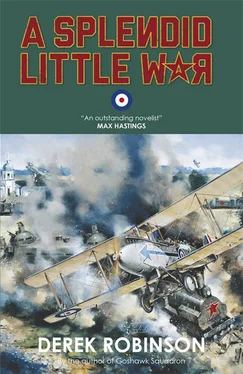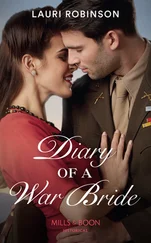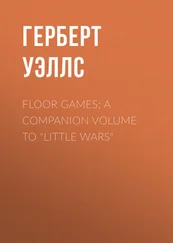“This is yummy,” she said. “Good idea.”
“You looked a bit forlorn, so I took a risk.”
“Risk.” She stroked her pony’s ears. “Some of the pilots shy away. Don’t want to be alone with a widow. Get too close, I might infect them. Look what I did to poor James.”
“They think they’re giving you time to grieve.”
“No, they want me to look heartbroken. Losing a man is a cardinal sin in their club.”
The ponies drank their fill and turned and waded back to the shallows.
“What is man’s cardinal sin?” he said. “According to the women’s club.”
“Expecting praise. Men want sex, meals and praise, endless praise for being so wonderful.”
They looked at each other. “What if I were to say that I’ll forfeit the praise and do the cooking if you will marry me?”
“I’d say you don’t know me, and I don’t know you, and I need a long holiday from matrimony. But I’ll bear it in mind.”
They walked the ponies home.
“When I said flying makes us feel godlike, I wasn’t being completely truthful,” Borodin said. “It makes us feel remote and privileged. Earth is far below, sometimes a mile or even two miles, and therefore nothing to do with us. We can bomb it and strafe it and never feel the pain. We might kill the enemy, we might kill our own troops, it’s all the same to us. We live in a different world.”
“And nothing really matters because nichevo.”
“Ah. You know about that.”
“I hear it from the pilots. Nichevo suits their style. Another thing: they walk differently.”
“Really? How?”
“Never in step. Put two soldiers together, they always march in step. Pilots never do. Hands in pockets. Bit of slouch, bit of swagger.”
“Not me. I don’t walk like that.”
“Then you’re a freak.”
“And you’re a cruel and heartless woman. And I don’t want to marry you.”
“Yes, you do. Tell me one thing. What are the chances you’ll get shot down and killed?” He was silent. “Fifty-fifty?” she said. “Or worse? Quick death for you. Long gloomy life for me. Is that fair?” No answer.
Dextry returned, having seen no Bolos and found a suitable landing field, thirty miles to the north. The C.O. decided that was good enough. Tomorrow, the squadron would fly and the trains would move.
5
Maynard politely declined the offer of Edwardes’ toothbrush. The man had been with his field-gun unit for a long time, and Maynard suspected he had gone native. He hadn’t shaved today, and perhaps not yesterday, and to judge by his hands and arms, washing wasn’t a priority either. What Maynard, when he had ridden behind him, assumed was the smell of the horse, turned out to be the smell of Edwardes too. At Sherborne, Maynard had been taught to take a cold bath every morning; it kept a boy pure in body and in thought. Edwardes could do with a bath.
But he had undoubtedly saved Maynard from a spot of bother, and it would be fun to tell The Dregs about being rescued by a sort of robber baron and his gang. Maynard knew that rubbing his teeth with a finger dipped in salt was as good as a toothbrush. And the Camel wasn’t broken, so he wouldn’t be here for long.
He knew what was for supper. The cook made no secret of slaughtering a sheep, skinning it, and hacking it into chunks with a bayonet. They sizzled as they went onto an iron grid over the fire.
“Nice to know that the meat is fresh,” Maynard said.
“It always is, old boy. Russians don’t have the luxury of quartermasters. They live off the land.”
“I see.” Maynard had an image of the little village with its sole survivor in the ruins and dead cattle in the fields, and knew at once that Edwardes would not be interested. “There are advantages in travelling light,” he said. “My squadron can pack up and be off in half an hour.”
“These lads do it in five minutes.”
“I say! Good egg.” That had been the highest praise at Sherborne, but Edwardes merely raised an eyebrow. “Which reminds me,” Maynard said. “The question of moving. Really, all I need is a few gallons of petrol and I can be on my way.”
“Petrol, petrol. God knows where you’ll find that. It’s not a thing that Russian gunners have much use for. Horsepower gets us from A to B.”
“The squadron has plenty.”
“Then that’s your best bet. It’s too late today. Tomorrow I’ll send a man to the nearest railway station. Maybe they can send a wire. You’re not in a hurry, are you? Good. Relax. See how the poor live.”
The roast mutton turned out to be excellent. It would have been even better with a little redcurrant jelly, but to say so would be bad form. For the first time since he joined the R.F.C., he was not eating in an Officers’ Mess. They sat, men and officers alike, around the fire. There were no plates; either you ate with your fingers or you went hungry. There was black bread, and a bottle of vodka circulated. After his adventure in the Cossack camp long ago vodka did not frighten Maynard, and he was pleased to see that the men approved when he took a swig. He passed the bottle to Edwardes and said, “Not a drop is sold till it’s seven days old.” Edwardes grinned. “Seven-day vodka is vintage stuff. A bit like crusted port.”
There was only one course but there was plenty of it. Maynard ate his fill and was gazing into the glow of the fire when he felt the habits of a lifetime assert themselves. “Awfully sorry to be a damn nuisance,” he said, “but I’m afraid I need the latrines.”
Edwardes said something in Russian and a man got up and fetched a spade.
“Normally we don’t aspire to such luxury,” Edwardes said. “But as you’re a guest…”
Maynard took the spade. “Where?” he said.
Edwardes made a generous, sweeping gesture. “You have all of Russia,” he said.
Maynard walked deep into the dusk, and dug and squatted. “This isn’t why I came to Russia,” he whispered, “but no doubt about it, the roast mutton was utterly delicious.”
Edwardes had his own tent but no bed. “Camp bed broke long ago,” he said. He gave Maynard some blankets. “Find a small hole that fits your hip. After that, it’s like a featherbed.” He was right.
Breakfast was a black-bread mutton sandwich and a glass of Russian tea, brought to him in the tent. Another treat for the guest. He sat in the sunshine and watched the gun crews doing chores. He had a nagging feeling that he should be busy, but there was nothing he could do. Edwardes wasn’t there. He folded his blankets. He got his hands wet with dew and washed his face. He walked to a tall tree and emptied his bladder against it. What now? He went back to his tent and sat in the sun.
About an hour later, Edwardes came back on the same big horse.
“Meeting with the Russian commander,” he said. “Denikin’s advance is still advancing, and we’ve got orders to go with it. Pockets of Red resistance to be snuffed out. It’s up to you, but I don’t recommend staying here. An unarmed Englishman on his own is asking for trouble.”
“You were going to send a message to my squadron.”
“I told a bloke on the staff about you. He promised to do something. Don’t bet on it. They’re big on promises.” Maynard turned away. He had heard a faint growl, no louder than the drone of bees but deeper. He searched the sky and found a distant speckle of dots, quite high. “That’s the squadron,” he said.
Edwardes gave him some binoculars. Nine aircraft, flying high in the east. He followed them until they were lost behind cloud.
“Forget about the message,” he said. “I think they’re on the move again.”
“Doesn’t surprise me. Everyone’s chasing the Bolos now.”
Читать дальше











